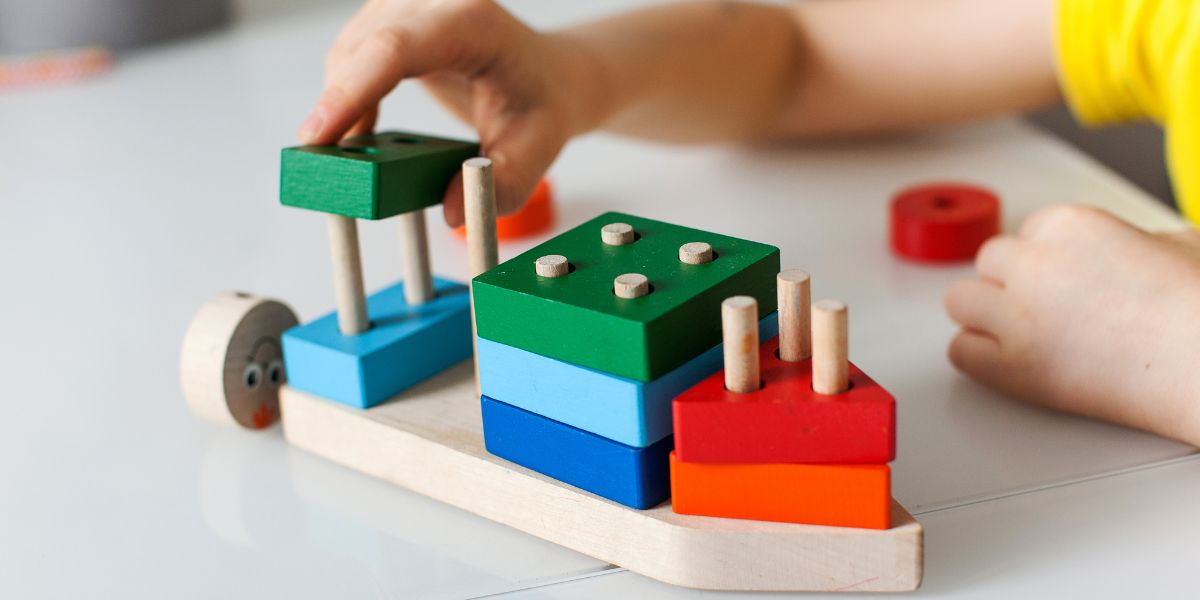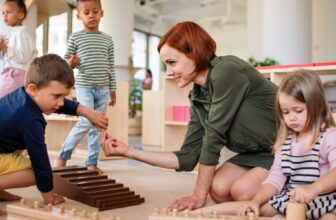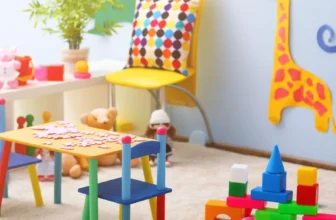
When it comes to early learning, Montessori tools offer a unique approach that goes beyond traditional methods. These tools not only engage multiple senses but also promote independent learning and critical thinking skills in children. By providing a foundation rooted in sensory experiences and autonomy, Montessori materials pave the way for a more engaging and personalized learning journey. But what sets them apart from other educational tools? Stay tuned to uncover the distinctive advantages that Montessori tools bring to the table.
Enhances Sensory Development
Enhance your child's sensory development with Montessori tools, providing hands-on learning experiences that engage multiple senses. These tools are carefully designed to stimulate touch, sight, hearing, and even smell, allowing your child to explore the world in a holistic way.
By using materials like sandpaper letters for tactile learning, colorful beads for visual stimulation, and musical instruments for auditory experiences, Montessori tools create a rich sensory environment for your child to thrive in.
As your child interacts with these tools, they aren't only learning academic concepts but also refining their sensory skills. For example, sorting different textured fabrics or smelling scented objects can help your child develop a stronger sense of touch and smell. Through these sensory experiences, your child's brain is actively making connections between the information gathered by their senses, enhancing their cognitive development in a profound way.
Incorporating Montessori tools into your child's learning routine can truly revolutionize their sensory development, providing a solid foundation for further learning and exploration.
Fosters Independence and Autonomy
Empower your child to take charge of their learning journey by incorporating Montessori tools that encourage independence and autonomy. Montessori materials are intentionally designed to be self-correcting, allowing your child to identify and correct errors independently. By using tools like the Montessori movable alphabet or the pink tower, children learn at their own pace and are encouraged to explore and discover on their own. These tools promote decision-making skills as children choose which activities to engage with, fostering a sense of independence in their learning process.
Furthermore, Montessori tools promote autonomy by allowing children to choose their activities based on their interests and abilities. This freedom to select their tasks fosters a sense of responsibility and self-discipline as they learn to manage their time and efforts. Through this autonomy, children develop a sense of ownership over their education, leading to increased motivation and engagement in their learning experiences. Empowering your child with independence and autonomy through Montessori tools sets a strong foundation for lifelong learning and personal growth.
Encourages Critical Thinking Skills
Transitioning from fostering independence and autonomy, Montessori tools also play a significant role in encouraging critical thinking skills in young learners. By engaging with hands-on materials that allow for exploration and problem-solving, children develop the ability to think critically and analytically. Montessori tools, such as puzzles, sorting activities, and sensory bins, challenge children to assess situations, make decisions, and experiment with different solutions.
Through these interactive experiences, children learn to observe, analyze, and draw conclusions independently. For example, when working on a puzzle, a child must use trial and error, spatial awareness, and logical reasoning to fit the pieces together. This process enhances their critical thinking abilities by requiring them to think logically and strategically to achieve a specific goal.
Moreover, Montessori tools often present open-ended opportunities, where there's no single correct answer. This aspect encourages children to think creatively, consider multiple perspectives, and explore different approaches to problem-solving. As a result, young learners develop essential critical thinking skills that are beneficial for their academic and personal growth.
Promotes a Love for Learning
Fostering a genuine passion for learning, Montessori tools ignite curiosity and engagement in young learners. By providing hands-on experiences and allowing children to explore at their own pace, these tools create an environment where learning becomes a joyful and exciting journey. Unlike traditional teaching methods that may focus on rote memorization, Montessori tools encourage active participation, sparking a deep interest in discovering new concepts and ideas.
Through the use of Montessori tools, children develop a sense of independence and autonomy in their learning process. This autonomy fosters a love for learning as children feel empowered to explore subjects that genuinely interest them. As they engage with the materials, they build confidence in their abilities and develop a positive attitude towards acquiring knowledge.
Moreover, Montessori tools often incorporate elements of creativity and imagination, making learning fun and engaging. This creative approach to education helps children see learning as a dynamic and exciting process rather than a chore. Ultimately, by promoting a love for learning, Montessori tools lay a strong foundation for a lifetime of curiosity, discovery, and growth.




